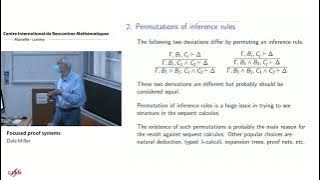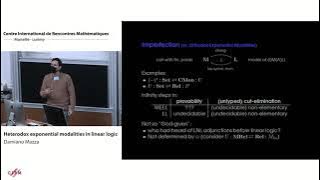Non-classical logic | Logic in computer science | Constructivism (mathematics) | Systems of formal logic | Intuitionism
Intuitionistic logic
Intuitionistic logic, sometimes more generally called constructive logic, refers to systems of symbolic logic that differ from the systems used for classical logic by more closely mirroring the notion of constructive proof. In particular, systems of intuitionistic logic do not assume the law of the excluded middle and double negation elimination, which are fundamental inference rules in classical logic. Formalized intuitionistic logic was originally developed by Arend Heyting to provide a formal basis for L. E. J. Brouwer's programme of intuitionism. From a proof-theoretic perspective, Heyting’s calculus is a restriction of classical logic in which the law of excluded middle and double negation elimination have been removed. Excluded middle and double negation elimination can still be proved for some propositions on a case by case basis, however, but do not hold universally as they do with classical logic. The standard explanation of intuitionistic logic is the BHK interpretation. Several systems of semantics for intuitionistic logic have been studied. One of these semantics mirrors classical Boolean-valued semantics but uses Heyting algebras in place of Boolean algebras. Another semantics uses Kripke models. These, however, are technical means for studying Heyting’s deductive system rather than formalizations of Brouwer’s original informal semantic intuitions. Semantical systems claiming to capture such intuitions, due to offering meaningful concepts of “constructive truth” (rather than merely validity or provability), are Kurt Gödel’s dialectica interpretation, Stephen Cole Kleene’s realizability, Yurii Medvedev’s logic of finite problems, or Giorgi Japaridze’s computability logic. Yet such semantics persistently induce logics properly stronger than Heyting’s logic. Some authors have argued that this might be an indication of inadequacy of Heyting’s calculus itself, deeming the latter incomplete as a constructive logic. (Wikipedia).


















